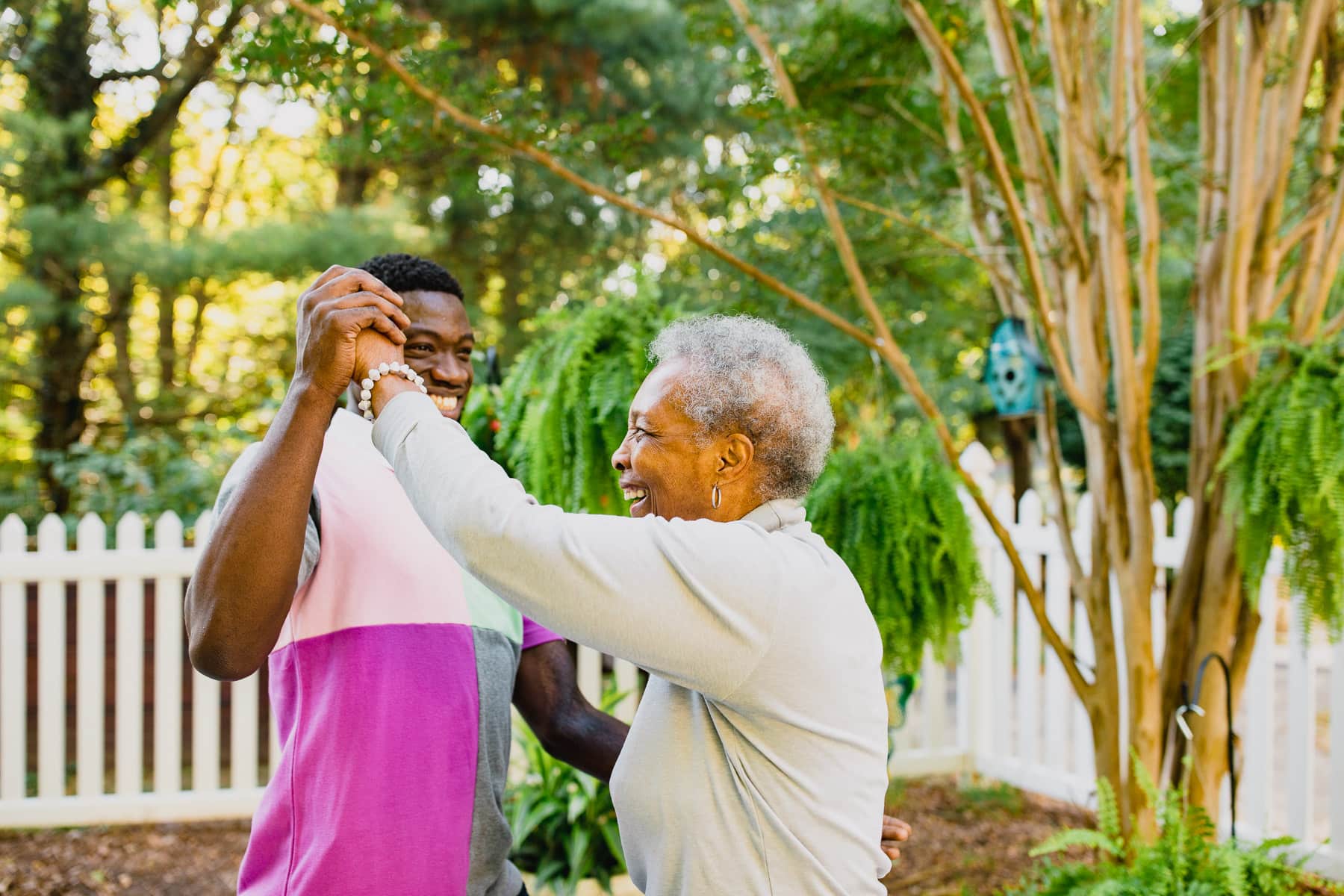Caring for a senior loved one is not always easy. It can be especially challenging when they are at the onset of Alzheimer’s or dementia. The amount of weight on one’s shoulders can be overwhelming at times. It can also feel at times as though they do not have control of the situation and may need additional support during caregiver burnout.
When we are in the position of caregiving for someone else, it is not uncommon to forget to take care of oneself. Asking for help can be difficult when you are already spending so much time with a loved one who needs more assistance. How can you balance the wellbeing of yourself and another? Allow us to show you a few helpful tips, as well as resources available to help.
What is Caregiver Burnout?
Caring for someone is very rewarding, but can carry a lot of stress. Over time, this can build up and eventually turn into a larger problem. After long periods of time being devoted to care, it leads to what’s called caregiver burnout. This is a state of emotional, mental, and physical exhaustion.
The day in and day out of caregiving is a lot to take on. When we don’t take care of ourselves in the same amount we give to others, it will have a negative impact on the caregiver and the one receiving it.
Common Signs of Caregiver Burnout and Stress
The first step to preventing caregiver burnout, is to know how to recognize it and help improve the situation. These are the following signs to pay attention to:
- Anxiety, depression, feeling easily agitated
- Being overly tired and run down, but having difficulty sleeping
- Overreacting to small annoyances
- Trouble focusing and neglecting responsibilities
- Suddenly starting unhealthy habits of drinking, smoking, or eating more
- Not taking part in activities that you once did, and feeling less energetic
- Feeling hopeless and impatient with the person you are caring for
Take Time for Yourself
Because you’re too busy or don’t have enough time for yourself, you begin to neglect your own needs. Although you are devoting a significant amount of time and effort to your loved one, that does not mean you must let caregiving take over your whole life.
Make sure to make time for family and friends, as well as any hobbies that bring you joy and satisfaction. You are still an individual and need ways to relax and give yourself meaning and purpose, rather than just a caregiver.
Pamper yourself. A manicure, fresh bouquet of flowers for the dining room table, taking a long bath are just some of the ways you can give yourself the relaxation time you deserve!
Laugh, and laugh with others. Laughter is known as one of the best stress relievers. Watching a funny movie, reading a funny article, or simply calling up a friend for a good laugh are ways to spur some comic relief.
Getting out of the house and simply spending time with others is also important. Have a friend come over for brunch or coffee if leaving the house is a little more difficult. Socializing and maintaining communication with others will help you stay positive.
Join a Caregiver Support Group
A support group is a great way to seek advice and share with others who are experiencing the same situation. Online groups are also out there for those who don’t have the option to leave the house.
You’ll feel less alone by hearing and learning from others in the same boat. Sharing troubles and providing support for others is a great way to be able to process emotions and get assistance.
To find a support group, check organization websites dedicated to the health condition you are assisting your loved one with, as well as your local Area Agency on Aging (AAA). Your loved one’s physician may even be able to refer you to groups as well.
When It’s Time to Ask for Help
If you are feeling past the sense of being overwhelmed, and know that caregiving is just becoming too much to handle, it may be time to consider other care options for your loved one.
Health care aides can provide on-site care if your loved one wishes to remain in the home. Another option would be to consider the decision of moving to an assisted living or memory care community. While it may be a bigger adjustment to take on, communities offer a lot of benefits that may be worth considering.
At Kensington Place, our exceptional senior living community serves a robust and vibrant dining menu that provides the right nutrition and taste. Life enrichment and therapies for speech, occupational, and physical needs are available on a regular schedule and cater to treatment needs. Our rehabilitation program works hand-in-hand with care plans to bring them closer to recovery.
Consider what the long run looks like for you and your loved one with Alzheimer’s and dementia. It’s better to have a plan in place for when caregiving becomes too much, rather than when time becomes of the essence. If you have questions about our memory care neighborhoods, give us a call today.
Further Reading:
Memory loss is life changing for all involved. At Kensington Place, we provide a state-of-the-art memory care program, a higher staff-to-resident ratio than industry standards, and more advanced care services. Our promise is to love and care for your family as we do our own.
For additional resources regarding your loved one’s condition, please read on about our Memory Care, Alzheimer’s Care and Dementia Care.



